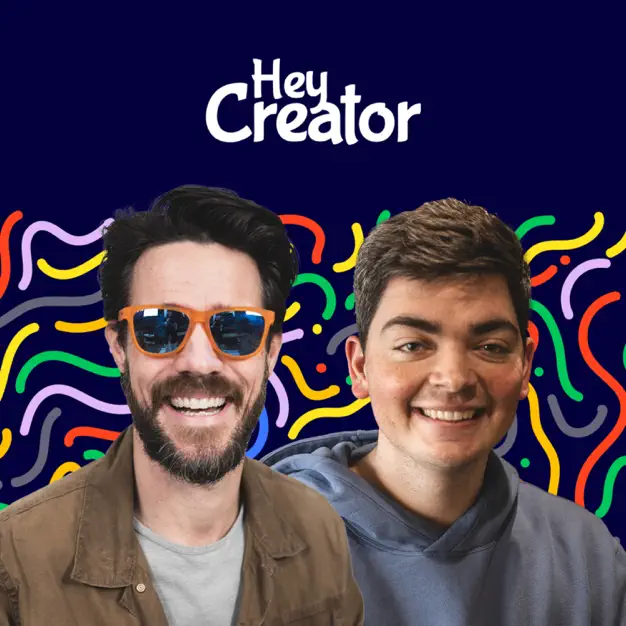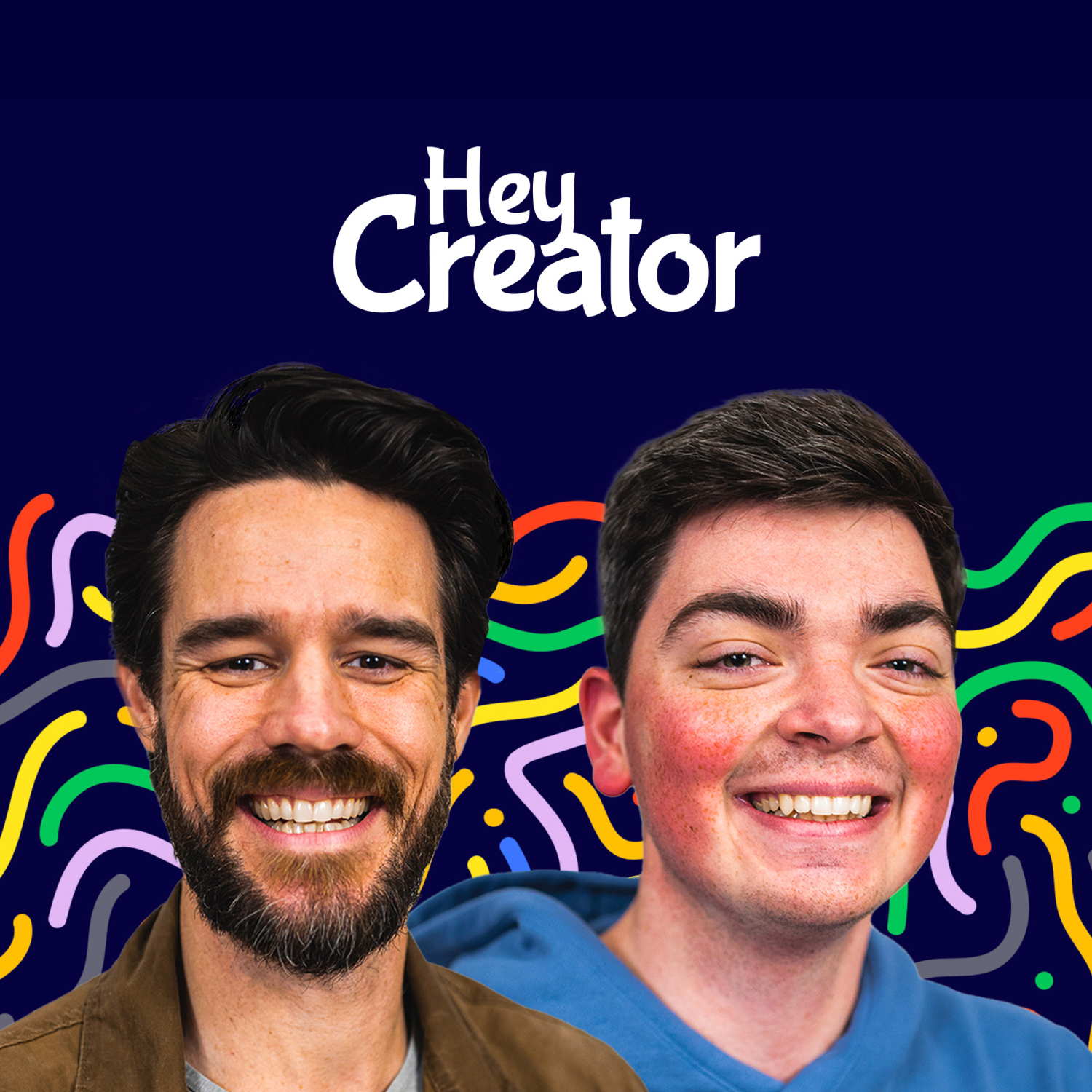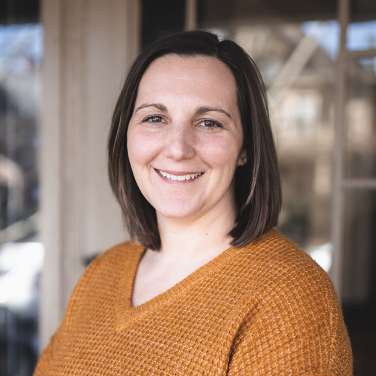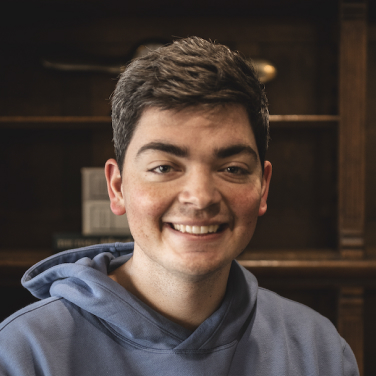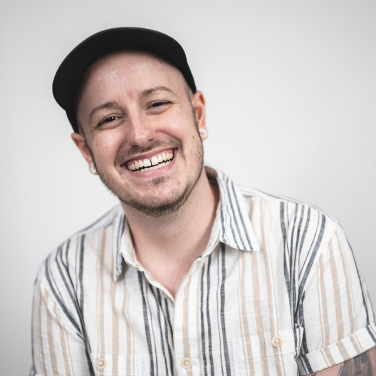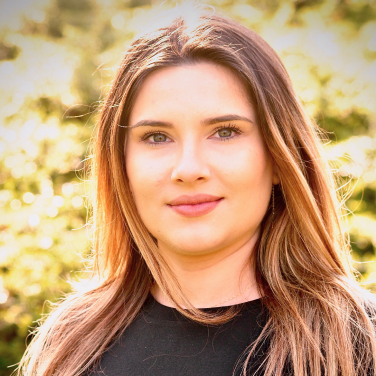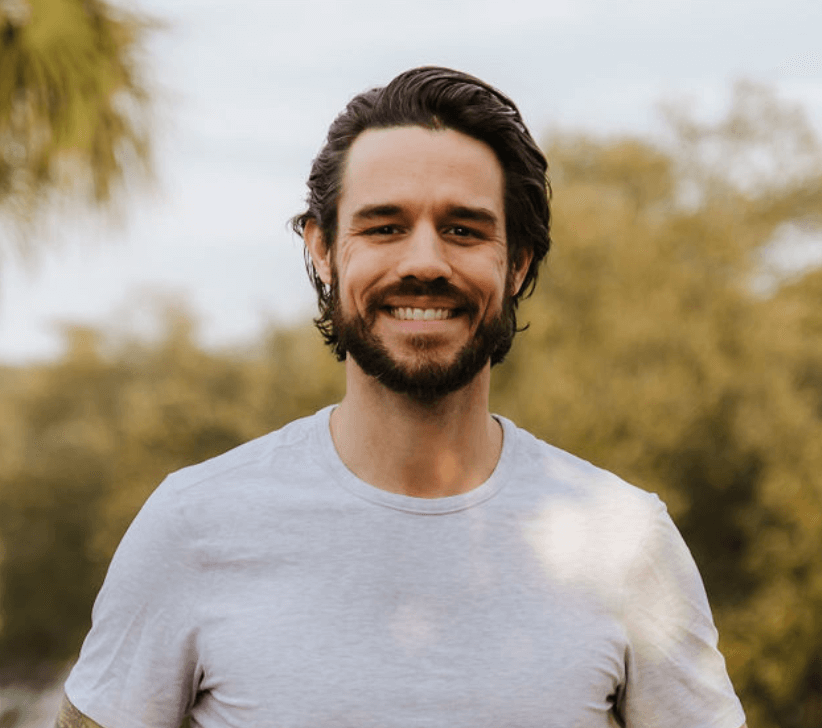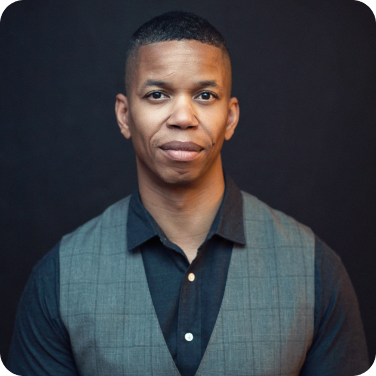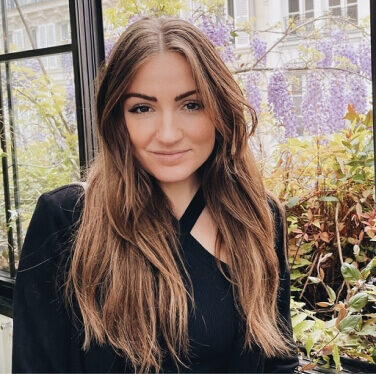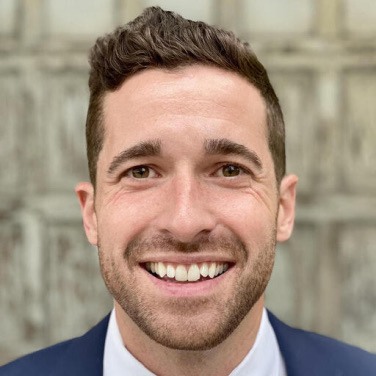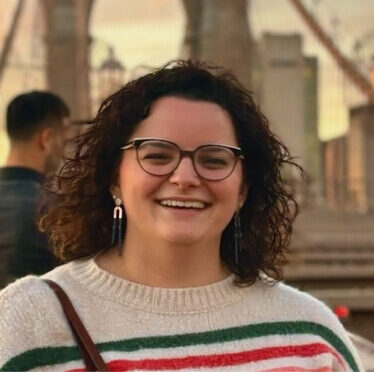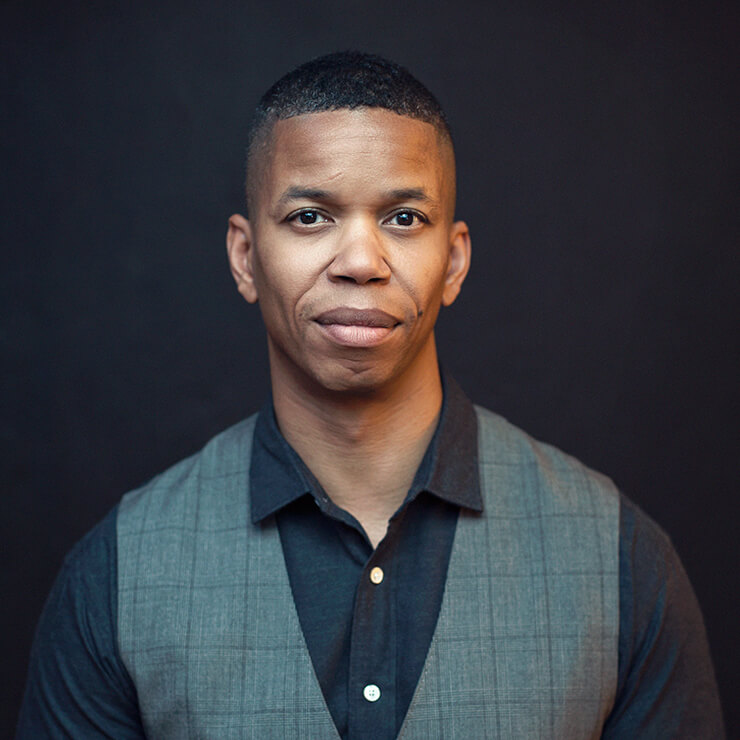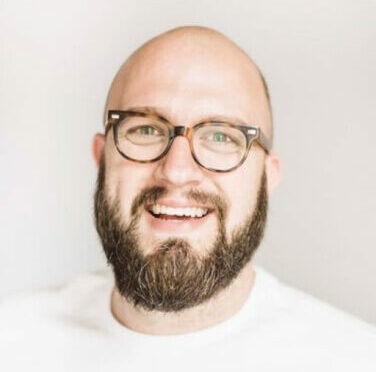[00:00:00] Matt Ragland: In this edition of Creator Advice, Nausheena wants to make her videos more engaging. Michael wants to know how he can use content to launch his conference. And our friends, George and Jay are both asking the same question. What’s next? Let’s go ahead and dive in.
[00:00:18] Tim Forkin: All right. Our first question comes from my guy, George, who is always in my replies on Twitter, super grateful for that. George is asking, he currently has a website that he’s proud of. He has an offer that he loves, which is premium video, podcast, post production. His website does look incredible. I’ll give him that.
Now he’s asking now, what,
[00:00:37] Matt Ragland: what do I do now? What I would think about with this and not knowing the whole context of George’s business. And I see George commenting a lot as well. So shout out to George. Thanks for, thanks for all the comments and shares. What I would just think about is doing more. Of the thing that you’re doing, how many more clients can you get?
How many more testimonials can you build? Can you start to build out a little bit of a team? Because Tim, you and I have gone through this. I’m on the newsletter side, uh, you know, our agency, uh, HeyCreator, good people, digital, we work with a lot of creators on this and George. What I would first be thinking about, like, Maybe expanding the agency a little bit, because if you have something really strong like this, then I would want to teach some other people to do it with me so that I could build a business that honestly has the capability of being sold.
Because if you’re doing this and you never build like an agency into something that could, One day be sold or acquired. Then once you stop working on it, then it ceases to have a whole lot of value. So hire some people, maybe just to do a couple of things on your process so that one, you can get more time back to do the things that you’re really good at, or maybe try some of these other things that, uh, Tim and I are about to talk to you about, but that would be my first thing is like get some more clients so that you’re forced to bring in a couple of contractors that can help you with it so that you can build more of a business instead of just a, you know, it could still be very systematic.
It could be very productized, but it sounds like you’re still the one doing everything. So I would try and take yourself out of some of these parts of the business so that it could scale without you. And it could potentially be something that you could sell in time. That’s a perfect answer. That’s what
[00:02:16] Tim Forkin: I was going to say.
The second thing is that. Your offer George is based on the fact that every company needs to be a media company, right? You’re helping people launch their podcast, but I’m curious of like, what your own media company for your own company looks like, right? How hard can you go on content? I’m pretty sure George, as you said in the replies of our stuff before, like, You might’ve only made one or two pieces of your own video content, maybe not even a podcast yet of your own.
That’s the other way to build leverage. And it’s also like a reason why you should take Matt’s advice of build a team, because I’m sure all of your days are spent editing for clients. If you, if you’re doing this right, the reason to go get those extra clients and build out a team is that it frees you up for the time to grow your company even more.
Maybe even offer like courses. I guess I’m going down the value ladder. As Matt likes to talk about of the different ways that you can sell your time or your knowledge. If you want to have every day be just straight editing in Premiere. I think that’s awesome. I think everyone should have something that they love.
If you don’t want to live the next 20 years in Premiere, then I think it’s, it’s time to build leverage.
[00:03:20] Matt Ragland: Yeah, and that’s a great addition. And the reason that we think of it this way is you want to give yourself more freedom of time, more financial freedom, more creative freedom. And so I really like the use of that word leverage because it’s it’s so true.
You want to be able to say, I have this thing running. with other people that can continue to run with say less or minimal input from me while I go build a media company while I work on my own content. Because people, unless you are, and George, you very well could be on your way to being a top 1 percent editor, a top 1 percent like agency owner.
But until you get to like that top 1% Top level where you’re charging 50 grand, uh, one of our friends, one of our clients that we wrote newsletters for, uh, as a part of Automatic Evergreen. He signed a 300, 000 client contract to do, to do work for them. Pretty, pretty, pretty good. As Larry David likes to say, pretty good.
But even this guy is telling me, hey, Matt, I don’t want to just be chasing contracts for the rest of my career. I, you know, I can sit on this one for a little while, but how can I teach others to do what I do? How can I give more resources to people who, if I’m going to be six figure contract guy, which, you know, great place to be six figure contract guy, but when you’re signing that level of contract, you’re basically employed by that company and you may still want to say like, Hey, This is what I would do for you for 10, 000.
Like what’s your 10, 000 course? Or could you do a group coaching program? Who can you teach to do what you do? So that is a type of customer. And another type of customer is like, who are the clients that I could have? If I had more time, what would I teach them to do that instead I’m doing for like this a hundred K client.
So just be thinking about, and that, that concept of leverage showing, you know, what you’re talking about by producing your own content, and then Doing how to tutorials on YouTube, whatever it may be, having your courses. These are all ways to distribute your income, ways to distribute your team, your time, and give yourself more leverage and more optionality as you grow as an entrepreneur, as a creator.
One
[00:05:35] Tim Forkin: last point on this. There’s two realities here. Is like how much money you need to make to continue to do this and how much you enjoy doing this. I want to double click on that. As you would say, Matt, one more time is if you only want to spend your days in Premiere, I would strongly encourage you to do that.
I was you in a certain sense, George, for about all of 2023 editing videos for clients. Outside of the full time job here at a creator. And I liked it, but I liked it because of the dollars. I didn’t like it because it had me staring at screens until 9pm every day. Once this all opened up to create for the company and it’s all compressed into one thing, that is my happy, right?
So if you’re happy is actually just editing for clients and it’s not posting your own content and you can get by doing that, then I think you need to do that. The other reality of it is you are going to need to make this kind of content that you’re consuming by being in all of our replies, which once again, super grateful for, you’re gonna need to create that kind of content to continue to sustain your business.
Like it’s, it’s the reality of it. I’ll say it one more time. Every company is a media company. That’s such a played out phrase, but. Phrases are usually played out because they’re mostly true. You’re going to have to create content that demonstrates your expertise, which you’ve already started to do. And I would continue to hammer that.
Next question is from our guy, Jay Yang, one of my longest internet creator friends over the past few years. It has been so awesome to see him go to where he’s at now from he’s graduating high school and has an incredible job working as the head of content for Noah Kagan. And knowing that Jay asked. I’m always scheming my next move from what you know, what you think my next move should be.
Agency, course, growth, something else. And I’ll kick it to you, Matt. You are farther along in this creative journey than I am. What would you tell 18 year old Jay about to go to college, Jay, with all the success he’s already accrued? What would you tell them?
[00:07:28] Matt Ragland: Yeah so I’m gonna take this in a way that some people and maybe not even Jay would think about and maybe it’s just me being old guy and I am like you said a little bit further along in this.
I actually believe that I made a similar mistake of always thinking about my next move and like acting on it too early. And I’m not saying this because like Noah and I are buddies and I used to work for Noah also but what I would say and something that I could have done better. is go as hard as you possibly can.
And I’m sure you’re already doing this, but go as hard as you possibly can to be the best head of content that Noah Kagan has ever had. Because Noah’s a big deal. Noah will help you with whatever you need if you do an awesome job for him. Like, this is one of those roles. This is one of those jobs that if you absolutely like crush it and knock it out of the park.
You won’t need to worry or really have to think much about what your next move is going to be. It’s going to be so obvious and it’s going to be obvious because you’re going to have a lot of options for what you can do because you’ve kind of gained in stature from being a part of what Noah’s building.
Now the cool thing about Jay is that Jay was already building a A platform, he already had a big content catalog of things that he had written about. He has all of these pieces in place. One of the things that I would do is like go back through the content that you have, especially any products that you have and clean those up, spruce, spruce those up, combine them to create a really strong product that you could sell at a relatively low price just to continue to get some product feedback, to get testimonials, to get some income going.
So that when you’re ready to do something else, and I think you’re going to talk about this some, Tim is I would create a community of people who are looking to do the things that you’re doing and when you’re doing, when you’re like gathering young people, it sounds so old to say I’m both side, it sounds really old to just describe like young people, but gather people who are like you, Jay, and get them in a community.
These are people that. You want to do things that you’re doing, and a lot of them will already be doing things that you’re doing. All you have to do is like curate the community. You don’t have to be the star. You probably could be, but that’s what I do. Like number one, are you even 20? I know, like we worked with Jay a little bit.
I like to, I like to think that we have a bit of an eye for talent as well. Cause we, we hired Jay as a, as a writer, like. You’re doing it, man. So I would go as hard as you can. And I think you already are. I’m just saying what I would do is like, I wish when I had the opportunities that I had, and I still did work really hard that I focused even more than I did.
I’m like, how can I be insanely great at this role that I’m in right now? Because if for someone like Noah at a place like Sumo, if you crush it there. You’re going to have all the opportunities that you need when you’re ready to hit that next step.
[00:10:22] Tim Forkin: That that’s incredible advice for Jay. I was thinking similarly along the lines of like starting a community, starting a movement.
I think a lot of the reason why I gravitate towards creators like Jay, there’s this kid I follow. Uh, he’s from a European country. Forgive me for not knowing his name is Vigo. He’s 15 doing all these things kind of like this. He is what Jay looked like when he first started. And I’m. I gravitate towards these people doing it early because I’m so impressed by it.
You can start a movement around like being the person while you, while you still are young, being the person to help other young people who see these opportunities and want to go chase them. I, I know you’re a big fan of Zach Pogrob and his obsession thing, his like mindset towards building this community of online people who are obsessed.
I don’t know if you need a word or if you need a phrase. Afraid or I don’t know what the, I can’t do that for you, but the idea of bringing all these younger entrepreneurs together who aren’t doing it in the scammy shitty ways, and we’re actually out there to help people and make money ethically. And I’m not like not saying anything wrong with like these faceless YouTube and Instagram pages and like that.
I’m just saying you are doing this the right way. And there’s other people. Your age, younger, maybe a little older, like me, like I find myself in this target audience for you of people who desperately need to be around other people who do what you do. Like I need that in my real life. I don’t have basically any friends in my real life here in Michigan that are doing these kinds of things that, that Matt and I are doing online.
[00:11:51] Matt Ragland: The other thing that stands out to me about Jay is he’s approaching this at a young age. from an educator’s perspective, from a teaching perspective. Lots of younger creators that I see are mostly in the entertainer space. And I was listening to Nathan Berry talk about this with John Ushe at Craft and Commerce.
John was saying 10 years ago, he used to work at YouTube and he worked on the 2014 YouTube Rewind video. And of all of the creators that were On that video, there was one key distinction about their type of content that was by far the leading indicator if they were still uploading to YouTube or still an active creator and their level of success is that they were an educator instead of an entertainer.
Now, the best people blend those two things together, but most of the younger creators that I see are more on the entertainment vlog style of Creator and I see Jay doing so much more on the education side. And so that I think is your D your key differentiator is that you’re a younger educator and when you can still like talk about the things that you’re an expert at without having to pretend and you know, Tim, you talk about this a lot without having to pretend you’re an expert about a thing that maybe you haven’t done yet.
Well, I got that from Jay. Yeah, yeah. So that is, Jay, that’s your, that’s your key thing. So that’s, that’s what I would focus on. Again, like go, go super hard for Noah, and I’m not just saying that because I know Noah, um, but that is going to be such a good, like, launch pad for you whenever you’re ready to do the next thing.
Tim, this is a great question for you because you are the editing sensei here at HeyCrew. And just as a side, I’ve really admired how much like intention and extra work you’ve been putting into our edits and graphic passages. So I want to ask that you, this question from Nausheena in the HeyCreator community.
What types of things can I do in my video edit to make those videos more engaging?
[00:13:42] Tim Forkin: It’s a great question. I too had this question. It’s much of the reason why I have spent a considerable amount of time working on these Hey Creative videos. I’m about to put a graphic on the screen right now. Doesn’t really mean anything.
Just a flex for what I’ve learned. Um, I don’t even know what I’m doing as I’m recording this, but I’ll have done something fun in the edit here. It’s basically just raising your bar. For the videos themselves. First of all, second of all is like, what are the people doing that is relevant for your videos?
Right. So now she knows consulting you’re probably not going to do. I mean, this actually could be like a nice pattern interrupt But you’re not going to do like hundreds of flashy transitions and popping effects and like the cartoon Poof that I just put on the screen right now, but overall The question I would ask is, are you editing in service of your viewer?
The problem that I have with a lot of the entertainment style content we’ve been talking about is that it is so retention focused that it actually burns people out. There’s so much pointing towards how many YouTubers are slowing down their videos, not doing hundreds of movements and transitions and effects and sound effects.
It’s basically what is going to keep the person here It’s more about what you’re saying and how helpful you are and less about the edit, but to keep them more engaging, you have to do enough of it to keep them there. And I’ll ask the question one more time. What are you doing in service of the viewer?
I’ve never forget this. I, my senior year in college, I added video as a minor to my degree. It was a senior in a class of all freshmen, like the intro to video classes. And the number one thing I saw from these freshmen were that like, they thought a video was better by how many like spinning star transitions they put, or like, This best song that they pick to go with their, their class project.
And all of that stuff just made the video more distracting and made it not really helpful. So what texts can you put on screen? What can you emphasize in the edit to maybe zoom in just a little bit as like an important thing is being said with what I just did with this question that you’re asking. So edit in service of the viewer, understand what makes you more engaged in other people’s videos, copy that first, and then find ways to do it for your own content.
Last one. This one’s from Michael, which types of businesses are or are not good fits to build off greater brands, navigating any gray area there. So the example he gives is ultimately I want to start a conference. Should I start with a creator brand to build the audience or just jump straight into building the conference itself?
[00:16:03] Matt Ragland: Yeah, great question, Michael. Shout out to my fellow middle Tennessean. And I would say like. Almost any business that I can think of would benefit from content. Like if you were on here and we were like going back and forth on different types of businesses and how content could help them. Uh, we had Billy Browaz on the show, you know, a couple of months ago and he In his book, Simple Marketing for Smart People that just came out, he talks about a carpet cleaner that crushed it in his local area because he started putting content out.
You can think about restaurants and food and like how food trucks put out content. I mean, cause what you’re doing is telling a story and people resonate with stories and people also like to be helped. And so I can think of very few, like off the top of my head, I’m sure we could, we could do that. It’s some, but, uh, I can’t think of any businesses off the top of my head that wouldn’t be helped by some creator energy, some storytelling energy, some content going out that helped people to your specific question though, of ultimately I want to start a conference.
Should I start with the creator brand to build the audience or jump straight into building a conference itself? I would do both. Yeah. But don’t wait too long to build your conference. You could almost iterate on your conference the way that we talk about iterating on newsletters and products and courses.
The way that I would think about this, and you already have some talent for this, I’ve met you in person, is can you organize some meetups? Those could be in person, those could also be online. I do think that you should start to build a brand and build content around your conference’s topic. The reason is even if it’s not a way that you sell tickets directly because you’re like, Oh, I have this huge audience and people are going to sign up to my conference.
It should be to demonstrate to other experts in your field. That’s, you know, what the heck you’re talking about. If you don’t have any thing out online about the conference that you want to build, and I’m not sure if you do or not, I don’t know the topic. Then when you go ask people to speak, because this is a conference, you’re going to have other people besides you.
They’re going to look you up and I know, you know, this, they’re going to look you up and be like, what’s Michael been talking about? What does he know about this thing? And so the more that you have out there. And you can think about your content audiences in two ways. One, it should be like for the type of content that someone who’s attending the conference will be interested in, but also for the type of speaker that you want to have.
How am I showing them my expertise so that they want to come speak? And start with maybe an online summit. Maybe you have Just in person meetup, something really, really chill where you’re talking about these topics, talking about the key issues. And then I would go into seeing what can you do with a conference?
Can you get a hundred people? Because the way that I would think about this, even if you don’t have a large audience, but this is why you start Creating content about this. Can you find five to 10 speakers who are really well known and basically partner with them on the conference? You would not make near as much money, but if you can get a location and you can get pre sales on tickets, because you have these people who are really well known that are talking about the conference, then you have speakers, you have pre sales, you can get a venue and you’re off and running.
One person that did this, I don’t know the size of his audience when he did this, but Sam Parr. Ran HustleCon for two or three years because of the Hustle newsletter. Now, I don’t know how many subscribers Sam had when HustleCon was going. I don’t, it definitely wasn’t 2 million. A million. Was it the tens of thousands?
Probably. Sam had written so many newsletters and so many articles at that point. That when he went to ask people to be a speaker at HustleCon, they’re like, Oh yeah, I’ve seen you writing for months, years. I’d love to be a speaker. And then those people talk to their thousand to hundred thousand, you know, subscriber, you know, follower audiences like, Hey, I’m going to speak at HustleCon.
And everything took off from there. So you got to do both, but you probably don’t have to wait as long as you think you have to in running the conference. If you can get the right speakers on board, then I’m going to partner with you and promote, and I would have, you probably have to give them like a A chunk of ticket sales, but that’s a whole other thing to talk about.
But partnerships, promotions, demonstrated expertise. That’s what I think you got to do.
[00:20:23] Tim Forkin: This conference, if this is your ultimate goal, you said, ultimately, I want to start a conference. This is your ultimate goal. Conferences happen. Once, twice a year, right? Your ultimate goal actually should kind of gear back towards that creator side, because being a creator, having a brand and a following and a reputation is the infinite game that allows you to throw that massive conference, right?
So, you know, you should be creating content around this. I don’t know what your specific niche or topic is, but like being the number one person in that easily paints the picture for
[00:20:52] Matt Ragland: you to have this conference. Tim, that’s great. I love the note on the infinite game and that’s something that we’re always looking at doing at HeyCreator with the things that we’re making is something that a lot of our guests and experts have talked about is like the only way that you lose as a creator is to quit.
So this is something you can keep on going. It’s peaks, it’s valleys, it’s ons, it’s offs, it’s all the things, but it’s what we love doing. Thanks so much for writing in your questions. You can hit us up with questions in the future at hello@heycreator. com. Find us there. Thanks so much and we’ll see you next time.



